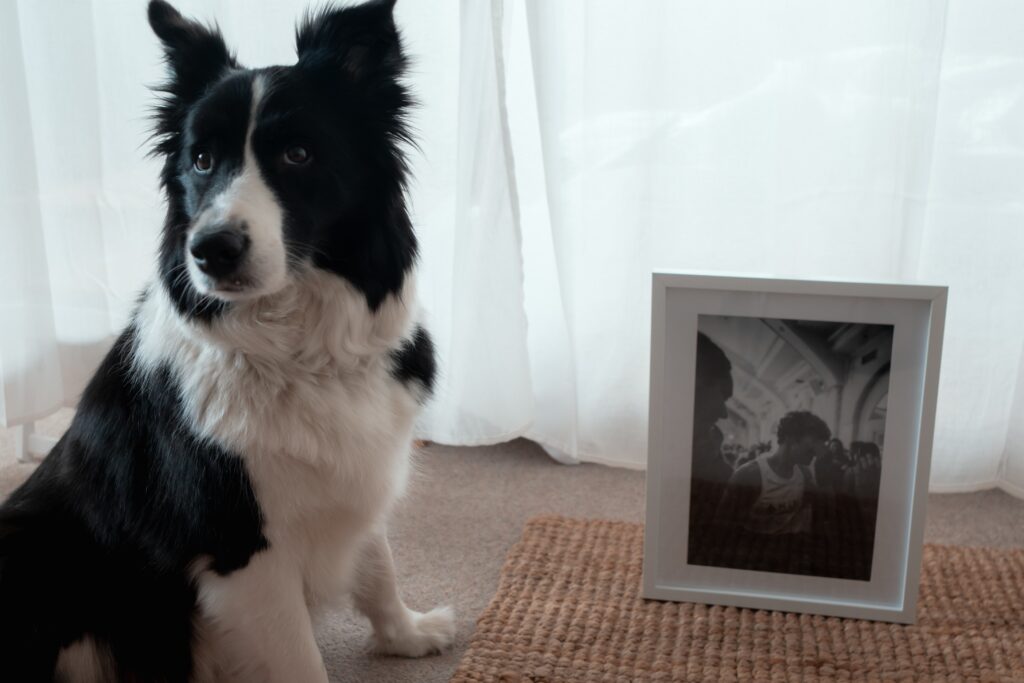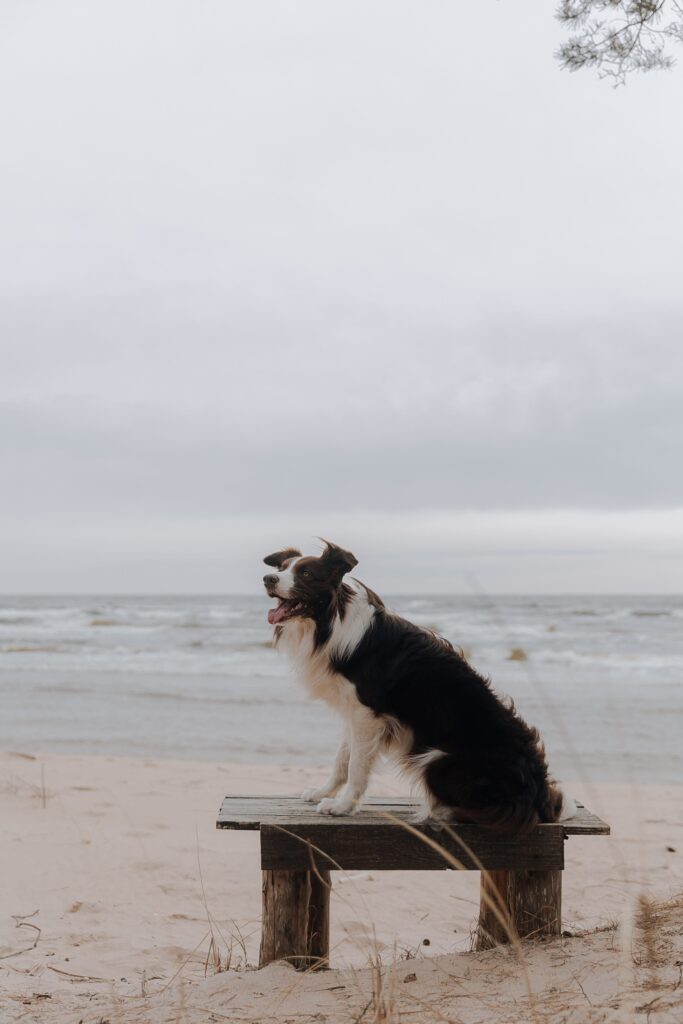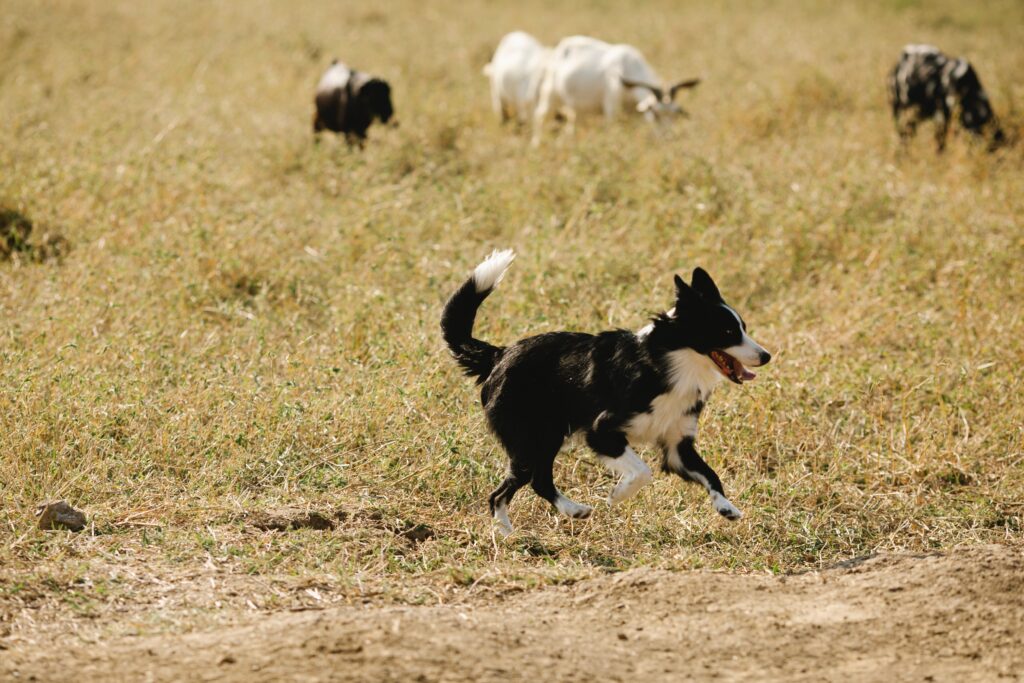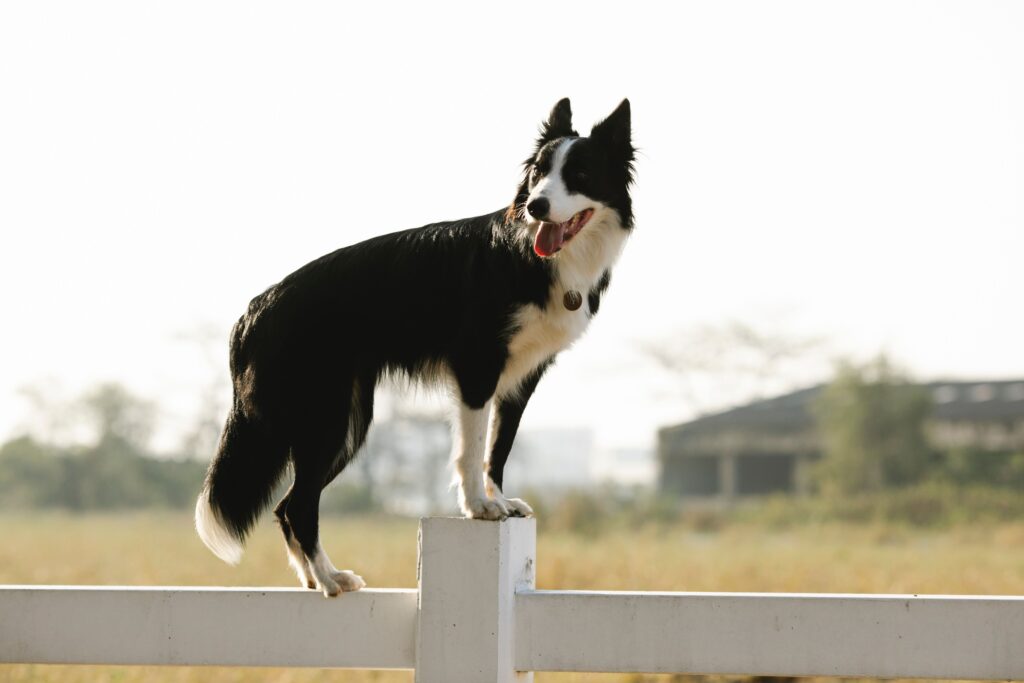
Border Collies are a highly active breed that requires plenty of exercise and mental stimulation. They were originally bred for herding and thrive in environments where they have a job to do. As a result, leaving them alone for extended periods of time can lead to boredom and destructive behavior. However, with proper training and preparation, it is possible to leave a Border Collie alone for short periods of time.
Understanding Border Collies
Border Collies are an intelligent breed of dog that are known for their energy and quick learning abilities. They are often referred to as working dogs or herding dogs due to their natural instincts to herd and work alongside their owners. However, their high energy levels and intelligence make them a unique breed that requires special attention and understanding.
As high energy dogs, Border Collies require a lot of exercise and mental stimulation to keep them happy and healthy. They are not the type of dog that can be left alone for long periods of time without any interaction or activity. Without proper exercise and stimulation, they can become destructive and develop behavioral issues.
Age and Leaving Border Collies Alone
Puppies
Puppies require a lot of attention and care, and leaving them alone for extended periods is not recommended. They have not yet developed the necessary skills to entertain themselves or hold their bladder for long periods. It is recommended that puppies under six months old should not be left alone for more than two hours at a time.
If you need to leave your puppy alone for a short period, you can create a safe area for them to stay in, such as a crate or playpen. Make sure they have access to water and toys to keep them occupied. Gradually increase the time you leave them alone as they get older and more independent.
Adult Dogs
Adult Border Collies can handle being left alone for longer periods than puppies, but it is still essential to ensure they have everything they need to be comfortable and entertained. Most adult dogs can hold their bladder for up to eight hours, but it is recommended to limit alone time to six hours or less.
To help your Border Collie cope with being alone, provide them with plenty of toys and activities to keep them busy. Consider leaving the radio or TV on to provide some background noise and make them feel less alone.
It is also important to ensure your Border Collie gets enough exercise and mental stimulation when you are home. A tired dog is less likely to become anxious or destructive when left alone.

Effects of Isolation on Border Collies
Border Collies are social animals that thrive on human interaction and companionship. When left alone for extended periods, they can develop negative behaviors and symptoms associated with isolation distress, loneliness, stress, and anxiety.
Isolation distress is a condition that occurs when dogs are separated from their owners and experience negative emotions. Border Collies are prone to isolation distress due to their attachment to their owners and high energy levels. Symptoms of isolation distress include excessive barking, whining, destructive behavior, and even self-mutilation.
Loneliness is another negative effect of isolation on Border Collies. These dogs are highly social and crave human interaction and attention. When left alone for long periods, they can become depressed and withdrawn, leading to a lack of energy and enthusiasm.
Separation anxiety is a more severe form of isolation distress that can occur in Border Collies. This condition is characterized by extreme anxiety and fear when the dog is separated from its owner. Symptoms of separation anxiety include excessive barking, destructive behavior, and self-injury.
Signs of Distress in Border Collies

Here are some signs that your Border Collie may be experiencing distress:
- Destructive Behavior: Border Collies may chew on furniture, shoes, or other household items when they are anxious or bored.
- Excessive Barking, Whining, or Howling: Border Collies may vocalize excessively when they are left alone, especially if they are anxious or stressed.
- Pacing: Border Collies may pace back and forth when they are anxious or stressed.
- Nipping: Border Collies may nip at their own paws or tails when they are anxious or bored.
- Digging: Border Collies may dig holes in the yard or carpet when they are anxious or bored.
It is important to note that not all Border Collies will exhibit these signs of distress. Some may become withdrawn or lethargic when left alone. It is important to observe your dog’s behavior and seek professional help if you notice any concerning changes.
If you must leave your Border Collie alone for extended periods, try to provide them with plenty of mental and physical stimulation before leaving. Consider leaving them with puzzle toys, long-lasting chews, or a comfortable bed to rest in. Additionally, you may want to consider hiring a dog walker or pet sitter to provide your Border Collie with some company and exercise while you are away.
How Long Can Border Collies Be Left Alone
The general rule of thumb is that Border Collies should not be left alone for more than 8 hours at a time. This is because they need regular exercise, mental stimulation, and socialization to stay healthy and happy.
However, some Border Collies may be able to handle being alone for longer periods of time, especially if they have access to plenty of toys, puzzles, and other forms of entertainment. It’s important to note that every dog is different, and what works for one may not work for another.
If you need to leave your Border Collie alone for an entire day, it’s important to make sure they have access to food, water, and a comfortable place to rest.
Training Border Collies to Stay Alone
Training a Border Collie to stay alone can be a challenging task, but it is not impossible. It requires patience, consistency, and positive reinforcement.
The first step in training your Border Collie to stay alone is to start with short periods of time. Begin by leaving your dog alone for a few minutes and gradually increase the time as your dog becomes more comfortable.
Crate training can also be helpful in teaching your Border Collie to stay alone. A crate provides a safe and comfortable space for your dog and can help prevent destructive behaviors when left alone. Make sure to introduce the crate gradually and never use it as a form of punishment.
When training your Border Collie to stay alone, it is important to provide plenty of exercise and mental stimulation. A tired and mentally stimulated dog is more likely to rest and relax when left alone.
To reinforce good behavior, reward your Border Collie with treats and praise when they stay calm and relaxed while alone. Avoid punishing your dog for bad behavior, as this can cause anxiety and make the problem worse.

Stimulation and Activities for Border Collies
One of the best ways to provide mental stimulation for your Border Collie is through interactive toys. Puzzle toys that require your dog to figure out how to get a treat or toy out of them can keep them occupied for hours. Kongs, treat balls, and other interactive toys can be filled with treats or peanut butter to make them even more enticing.

In addition to interactive toys, you should also provide plenty of physical activity for your Border Collie. These dogs love to run and play, so regular walks and trips to the dog park are essential. You can also play fetch or frisbee with your dog in the backyard or a nearby field.
Dealing with Separation Anxiety in Border Collies
If you’re a Border Collie owner, it’s important to recognize the signs of separation anxiety and take steps to help your dog overcome it. Here are some tips for dealing with separation anxiety in Border Collies:
- Start by gradually increasing the amount of time your dog spends alone. This can help them get used to being alone and reduce their anxiety over time.
- Make sure your dog has plenty of exercise and mental stimulation throughout the day. This can help tire them out and make them more relaxed when you’re not around.
- Provide your dog with a safe and comfortable space to be in when you’re not home. This can be a crate, a specific room, or an area of the house that they feel comfortable in.
- Consider using calming aids such as pheromone diffusers or calming music to help your dog relax when you’re not around.
- Work with a professional dog trainer or behaviorist to develop a plan to help your dog overcome their separation anxiety. This may involve desensitization and counterconditioning techniques to help your dog learn that being alone is not a threat.
Alternative Care Options for Border Collies
While it is best to avoid leaving your Border Collie alone for extended periods, sometimes it may be necessary. In such cases, it is important to ensure that your dog is well taken care of and does not become anxious or destructive.
One option is to hire a dog sitter who can come and check on your Border Collie periodically throughout the day. This will provide your dog with some company and allow them to get some exercise and attention. Make sure to hire a reputable and experienced dog sitter who is familiar with the breed.
Another option is to have a family member or friend look after your Border Collie while you are away. This can be a good choice if your dog is already familiar with the person and feels comfortable around them. However, make sure that the person is willing and able to provide the necessary care and attention your dog needs.
Doggy daycare is another alternative care option for Border Collies. This can be a great option if your dog enjoys socializing with other dogs and needs plenty of exercise. Look for a daycare that has experienced staff and a good reputation. Make sure to check that the daycare has adequate facilities and safety measures in place.
Adding a second dog to your household can also provide your Border Collie with some company and stimulation. However, it is important to ensure that the two dogs get along and that you have the time and resources to care for both dogs properly.

Creating a Comfortable Environment for Border Collies
Comfortable Furniture and Bed

Having comfortable furniture and a cozy bed can make a big difference in your Border Collie’s comfort level. Invest in a quality dog bed that is the appropriate size for your dog and has a soft cushion. You can also provide your dog with a comfortable sofa or chair to lounge on while you are away.
Dedicated Space
Creating a dedicated space for your Border Collie can help them feel safe and secure. This space should be a quiet area where your dog can relax and sleep. You may want to consider using a crate or playpen to create a designated area for your dog.
Safety Measures
Border Collies are curious and active dogs that can get into trouble when left alone. Take safety measures to ensure your dog is safe while you are away. This includes removing any hazardous items from your dog’s reach, securing doors and windows, and providing plenty of toys to keep your dog occupied.

Frequently Asked Questions
What is the maximum amount of time a Border Collie can be left alone?
Border Collies are social animals and require a lot of attention and exercise. They should not be left alone for more than 6-8 hours at a time. Leaving them alone for extended periods can lead to boredom, anxiety, and destructive behaviors.
Are Border Collies prone to separation anxiety?
Yes, Border Collies can be prone to separation anxiety. They form strong bonds with their owners and can become anxious and stressed when left alone for long periods. It is important to gradually train them to be comfortable with being alone and provide them with plenty of mental and physical stimulation.
What are some activities I can leave for my Border Collie while I’m at work?
Border Collies are intelligent and active dogs that require plenty of mental and physical stimulation. Leaving puzzle toys, chew toys, and interactive toys can help keep them occupied while you are away. You can also consider hiring a dog walker or pet sitter to provide them with exercise and attention during the day.
Can Border Collies be trained to stay calm when left alone?
Yes, Border Collies can be trained to stay calm when left alone. It is important to start training them gradually and provide them with positive reinforcement when they exhibit calm behavior. Crate training can also be helpful in providing them with a safe and comfortable space when left alone.
Are Border Collies good apartment dogs?
Border Collies are active dogs that require plenty of exercise and mental stimulation. While they can adapt to apartment living, it is important to provide them with daily exercise and mental stimulation to prevent boredom and destructive behaviors.
Are Border Collies more likely to become aggressive when left alone?
Border Collies are not more likely to become aggressive when left alone. However, if they are not properly trained and socialized, they can exhibit destructive behaviors out of boredom and anxiety. It is important to provide them with plenty of exercise, mental stimulation, and socialization to prevent these behaviors.
Are Border Collies Good With Kids
Yes, Border Collies can be great with kids, especially if they are well socialized and trained. Border Collies are known for their intelligence, loyalty, and energy, which can make them great playmates for children. However, it is important to supervise interactions between children and dogs, and to teach children how to properly interact with dogs to avoid any potential accidents or negative experiences. Additionally, it is important to provide Border Collies with plenty of exercise and mental stimulation to prevent boredom and destructive behavior.